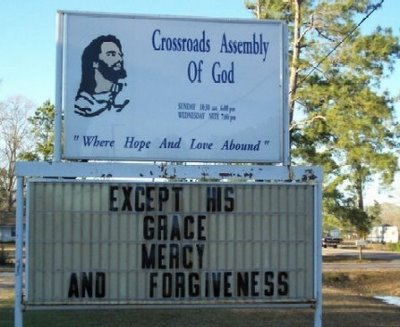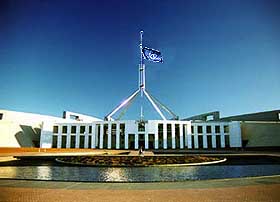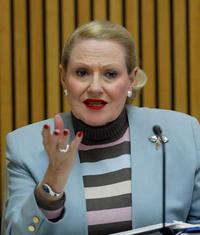The History Wars
 The Prime Minister has recently called for a renewal of history teaching in Australian secondary schools, with the suggestion of making history a compulsory subject in all schools. Mr. Howard is concerned about how we are to preserve, in an increasingly pluralistic society, a sense of Australian national identity, without an overarching and coherent narrative. “I do not believe,” he said, “that you can have any sensible understanding and, therefore, any sensible debate about different opinions of Australian history unless you have some narrative and method in the comprehension and understanding of history. How you can teach issues and study moods and fashions in history, rather than comprehend and teach the narrative, has always escaped me.” (“Summit divides over compulsory history,” The Age 17.08.06)
The Prime Minister has recently called for a renewal of history teaching in Australian secondary schools, with the suggestion of making history a compulsory subject in all schools. Mr. Howard is concerned about how we are to preserve, in an increasingly pluralistic society, a sense of Australian national identity, without an overarching and coherent narrative. “I do not believe,” he said, “that you can have any sensible understanding and, therefore, any sensible debate about different opinions of Australian history unless you have some narrative and method in the comprehension and understanding of history. How you can teach issues and study moods and fashions in history, rather than comprehend and teach the narrative, has always escaped me.” (“Summit divides over compulsory history,” The Age 17.08.06)
Just last week a summit of historians, politicians, and educators met in Canberra to discuss the Prime Minister’s proposal. This seems like a welcome trend but there are some who are concerned about the possible “politicization” of history that may result from such an approach. If Australia is to have an “official” history, if the Prime Minister is to appoint the historians who write the curriculum, if government funding is to be directed to some projects and not others, then whose version of history will be sanctioned? Already the opposition Labor Party is concerned that the government wants to rewrite history to reflect its own conservative world-view. Opposition education spokeswoman Jenny Macklin said in The Age “The teaching of history is very important in our schools but the last thing we want is John Howard pushing his ideology down the throats of our children.”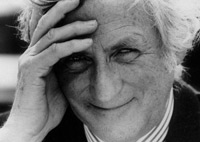 Is this just the opening round in the next campaign of the “history wars”? Debates about the nature of the past are hugely significant in shaping the identity of any people and in charting a way forward into the future. The heart of the argument can be traced back to a phrase coined by Geoffrey Blainey (left) in his Latham Lecture of 1993 and then subsequently picked up by John Howard when he won government in March 1996. Blainey referred to the pessimistic view of Australian history as “black-armband history.” Earlier generations had held a very positive “three cheers for the British and their great accomplishments” kind of history. This at least was the history I was taught at school. There was lots of flag raising, and military uniforms, with the Aborigines somewhere in the background looking on from behind trees, waiting to perform cultural ceremonies to the delight of their newly arrived guests. No blood was spilt (or very little) in the history I learned at school. Words like “genocide” or “massacre” were never used. Blainey held that in reaction to this overly rosy view the pendulum had swung too far the other way and on overly pessimistic view had emerged resulting in an equal but opposite historical jaundice. (It should be noted that black armbands were used in the Aboriginal protest movement in the 1970s, before Blainey coined the term, as a symbol of Aboriginal dispossession.)
Is this just the opening round in the next campaign of the “history wars”? Debates about the nature of the past are hugely significant in shaping the identity of any people and in charting a way forward into the future. The heart of the argument can be traced back to a phrase coined by Geoffrey Blainey (left) in his Latham Lecture of 1993 and then subsequently picked up by John Howard when he won government in March 1996. Blainey referred to the pessimistic view of Australian history as “black-armband history.” Earlier generations had held a very positive “three cheers for the British and their great accomplishments” kind of history. This at least was the history I was taught at school. There was lots of flag raising, and military uniforms, with the Aborigines somewhere in the background looking on from behind trees, waiting to perform cultural ceremonies to the delight of their newly arrived guests. No blood was spilt (or very little) in the history I learned at school. Words like “genocide” or “massacre” were never used. Blainey held that in reaction to this overly rosy view the pendulum had swung too far the other way and on overly pessimistic view had emerged resulting in an equal but opposite historical jaundice. (It should be noted that black armbands were used in the Aboriginal protest movement in the 1970s, before Blainey coined the term, as a symbol of Aboriginal dispossession.)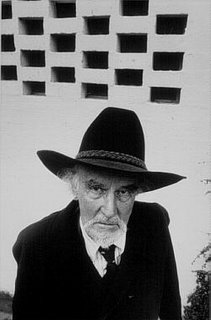
The person most responsible for this “black armband view” of Australian History, according to Blainey, was Manning Clark (above), the man usually seen as the founder of the approach to Australian History as Australian, rather than as an episode in British history. Blainey maintained that a “guilt industry” had emerged from Clark’s work outsides of the historical profession – in the ABC, in the Australian Labor Party, in educational institutions, and in the High Court. Too much emphasis was being placed, it was said, on the dispossession of the Aborigines, and on the destructive impact on the environment of European civilization. White Australians were racist, sexist, militarist, and exploitative and they needed to make reparations. John Howard, picking up on Blainey’s criticisms came into office in 1996 asserting that “the balance sheet of Australian history is a generous and benign one.” This appealed to an Australian sense of patriotism and national pride and no doubt contributed to a Liberal victory. [Mark McKenna, “Black-armband history,” in Graeme Davison, John Hirst, and Stuart Macintyre, eds. The Oxford Companion to Australian History (Melbourne: Oxford University Press, 2001), 73.]
More recently controversy has broken out over the nature of the dispossession of the Aborigines in Tasmania. In 2002 Keith Windschuttle’s The Fabrication of Aboriginal History made the claim that the “genocide” of Tasmanian Aborigines was a myth and that there had been no widespread massacres of Aboriginal people during the period of white settlement there. He argued that the Aborigines had no sense of ownership of land; such an idea was not part of their mental universe so they could not be said to have had their land stolen from them. The land was “terra nullius” – an empty land, belonging to no one and so legitimately appropriated by the British crown.
Windschuttle’s book created a storm of controversy and seasoned historians of Aboriginal and settler relations on the frontier, such as Henry Reynolds, clashed head on with Windschuttle’s hypothesis, as well as with his historical method and accuracy. Winschuttle became something of a cause celebre among right wing conservatives and The Australian ran a series of pro- and anti-Windschuttle pieces that kept the debate in the national consciousness for quite a while. For its own part The Australian tended to editorialize in favour of Windschuttle and he became something of a figurehead for those who opposed the “black-armband” approach to history. Professor Robert Manne, one of Australia’s leading public intellectuals, has lamented the way that “so many prominent Australian conservatives have been so easily misled by so ignorant, so polemical and so pitiless a book.” [Robert Manne, ed. Whitewash: On Keith Windschuttle’s Fabrication of Aboriginal History (Melbourne: Black Inc. Agenda, 2003), 11. 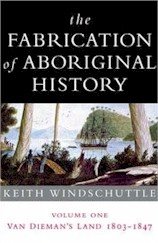
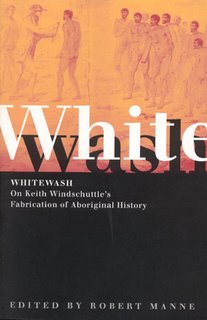
The latest move from the Prime Minister continues to stir the pot on our national history. So here we are in Australian in 2006 certain that history matters, and that the generally understood narrative of a nation does indeed affect national identity, politics, education, and a good deal more.
[If you liked this post you might also enjoy reading the following previous posts - Trying to Speak Good Christian in Canberra, Bring the Troops Home, "Wiping Out" the Aborigines, The Proposition and Race Riots in Cronulla.]








